It is a truth long acknowledged that an epic quest needs a Chosen One. The One Character, Chosen by Fate, Long-Prophesied, riddled with Marks of Great Portent, whose Birth Was Foretold, and Who Will Bring Balance/Right Wrongs/Overthrow Injustice.
But what about those heroes who aren’t chosen? Who see all of their friends, all of their world, go quiet in the face of an obvious evil? What about those who take up the lightsaber, the armor, the Ring, knowing all the while that, at any moment, they could be revealed as frauds? Or die without making anything better?
Today, we’re celebrating the “Unchosen Ones”.
Vin and Kelsier (Mistborn Trilogy by Brandon Sanderson)
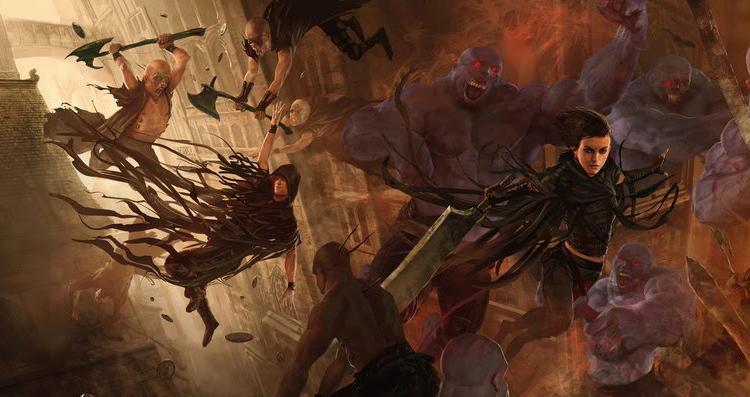
Vin and Kelsier live in a world of extreme injustice, swarming with monsters and mist, curated by the all-powerful Lord Ruler. There is no resistance. Resistance always fails. As thieves, Vin and Kelsier know this; all they want to do is get ahead and live out their days as part of the comfortable noble class.
Or at least that’s the reason Kelsier, himself an all-powerful Mistborn, initially tells Vin. As a rare Mistborn herself, Vin develops her powers to assist Kelsier with his heists, and continues to help him when it becomes clear that what Kelsier is really seeking is vengeance against the Lord Ruler. In the end, it becomes clear to Vin that what Kelsier really wants is a better world for everyone, that not only is he aiming straight at the source of evil in their world, he’s intent on creating something better as a replacement.
Kelsier fails. But in doing so, he solidifies Vin’s resolve. The evil of the Lord Ruler cannot remain unchallenged. And if she must be the only one to stand against that evil, then so be it.
Phillipe Gaston (Ladyhawke)
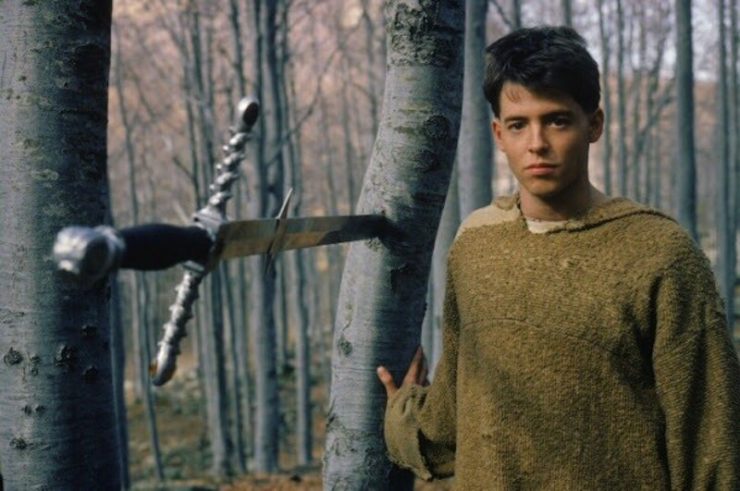
Phillipe Gaston is a thief—a damned good one, but still, just a thief. (We’re sensing a pattern here…) He’s not an epic hero or an orphan with a mystical birthright or a hidden prince. And he doesn’t have an overwhelming evil to fight; just a wrong that he feels he can’t ignore.
When Gaston stumbles across the dark fairy tale/curse shared by Etienne de Navarre and his ladylove, Isabeau, he does everything he can to resist it, first running away, and then trying to talk “sense” into the two lovers. But in the end he realizes that they have impossible odds against them, and that no one except an alcoholic friar is willing to help. He gives in to the story and plays several roles: saving Navarre, keeping hope alive in both of the lovers’ hearts, and reverting to his old cunning to smuggle the pair into the city to try to break their curse. He can’t save the world, but he can leave some lives better off.
Rey (Star Wars)
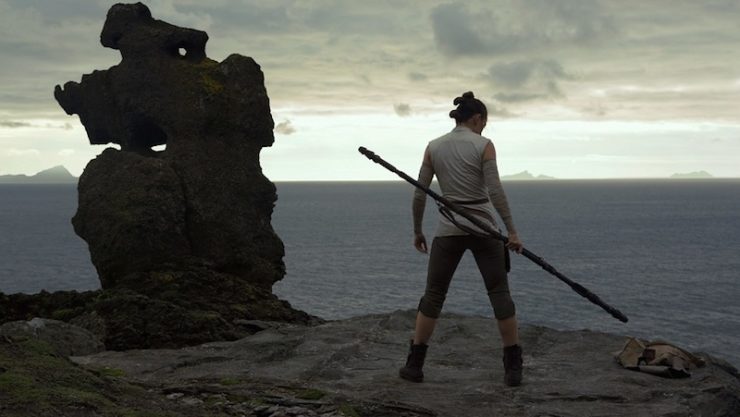
As The Last Jedi made clear, Rey is not a traditional chosen one. She’s a nobody, abandoned on a junk heap of a planet by parents who couldn’t (well, wouldn’t) take care of her. When she’s offered a gig that would take her across the galaxy she balks at the idea of a larger life. When she’s offered a straight up call to adventure, she runs the other way. She is desperate not to be chosen, because being chosen is terrifying. Even at the opening to The Last Jedi, she is still trying to pass the lightsaber back to Luke. She wants to hang back, be an apprentice, defer to an older authority.
But she’s seen the evil that pervades the galaxy (shirtless and all), and once Rey realizes that Luke is refusing his old responsibilities, she finally decides to step up and become the hero that her new friends, that the galaxy, needs her to be.
Heloise (The Armored Saint by Myke Cole)
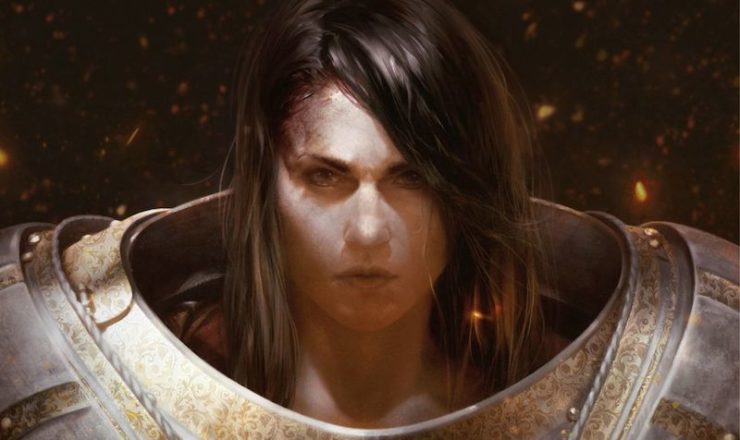
Offer deference to the Empire, always. Even if they ask you to commit unspeakable acts. Especially if they ask you to commit unspeakable acts. If you don’t, demons will rip open the world, your family, and you. Heloise, the main character of Myke Cole’s The Armored Saint, is a young teen in this world, caught in that confusing in-between age where she understands what the rules are, but not why she or anyone else has to continue to obey them.
Cole’s The Armored Saint continually examines this question, pitting the “wisdom of youth” against unquestioning obedience, even to the social and cultural mores that protect and support her.
Maia (The Goblin Emperor by Katherine Addison)
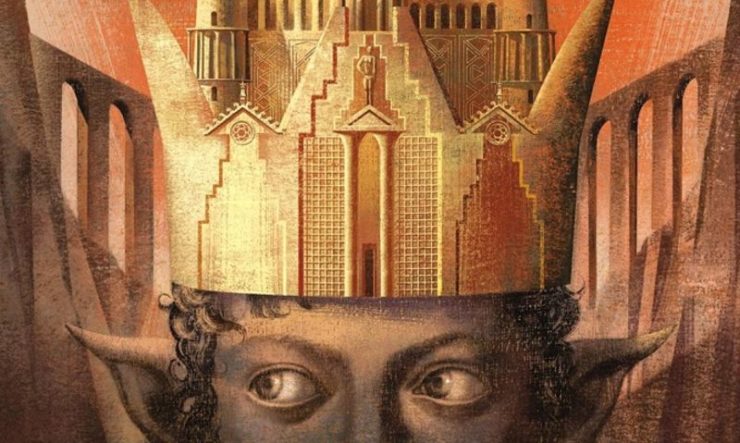
Maia is not supposed to be Emperor. He’s the fourth in line to the throne, the son of an unloved wife, banished and nearly forgotten. But when a freak accident takes the lives of the Emperor and his three elder sons, Maia is summoned to court. But how can he possibly govern? Half-elven, half-goblin, he’s hated by his courtiers, untrained in the ways of state, isolated from the people he’s meant to rule, and fighting scheming rivals at very turn. Katharine Addison’s immersive, disarmingly gentle take on epic fantasy follows Maia as he learns not just how to rule, but how to rule well. Maia wasn’t ever meant to be Emperor, but as the book rolls along, he’s shocked to find he might actually be up for the challenge. Addison’s novel is even more notable in that the “unchosen one” already comes from a life of privilege, allowing The Goblin Emperor to explore what motivates someone to rule well, to ward off evil, when the stakes aren’t life or death.
Deeba (Un Lun Dun by China Mieville)
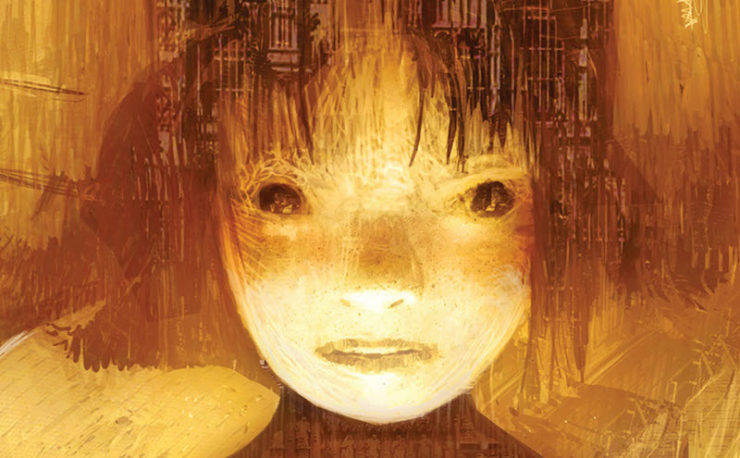
Obviously if we’re going to talk about “Unchosen Ones” we have to talk about UnLondon’s Deeba. When she travels to UnLondon with her friend Zanna, it’s under the belief that Zanna is the “Shwazzy,” the Chosen One prophesied by The Book (who can talk) to save UnLondon from the noxious Smog. But since Smog knows the prohpecy, too, Zanna is soon incapacitated in battle. The two girls are sent back to their own London, and all hope seems lost..unless Deeba decides to ignore prophecy. Can she find her own way back, and continue the battle without the benefit of Fate?
Taran (The Chronicles of Prydain by Lloyd Alexander)
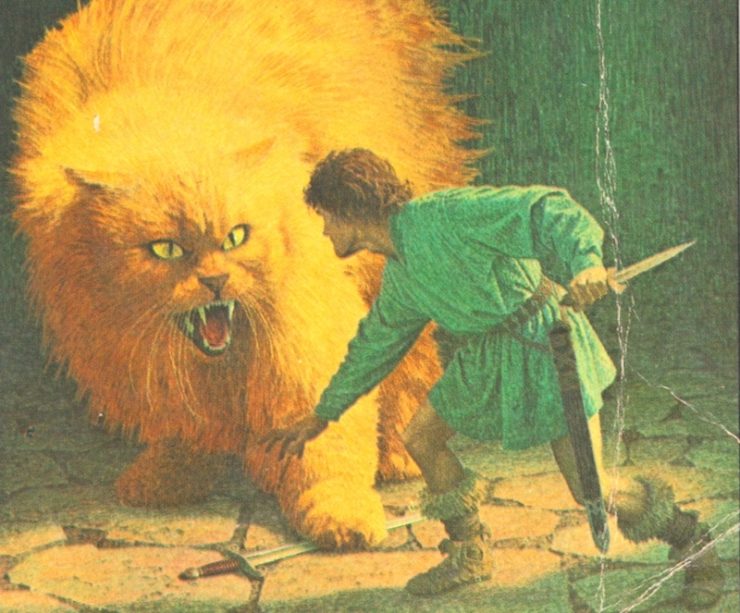
Taran’s epic quest began because he chased after a pig. After daydreaming of heroics for his entire youth, he fails at his actual job—assistant pig keeper—and then has to make things right when the pig (who happens to be Oracular) escapes. He crashes right into what would normally be the A-plot, Prince Gwydion’s fight against the Evil Horned King (Ooooooh.) Over the course of the Prydain series, Taran learns how to be the hero his land needs, and stops worrying so much about whether or not anyone considers him “Chosen.”
Bilbo, Frodo, But Mostly Sam (The Lord of the Rings by J.R.R. Tolkien)
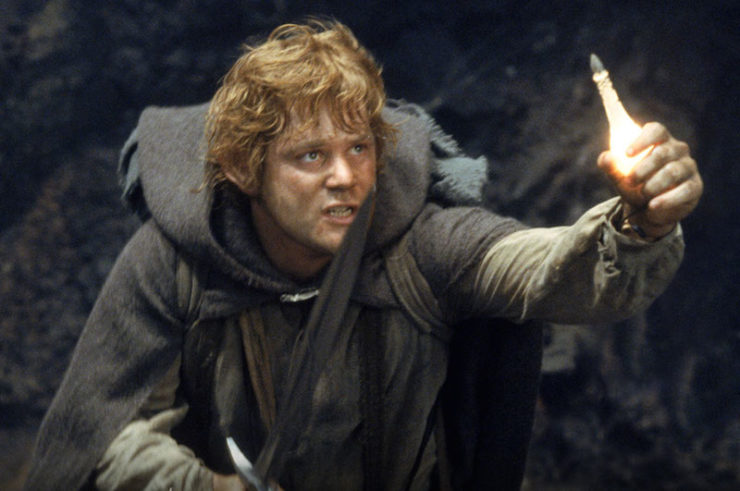
All three of Tolkien’s hobbit Ringbearers count as Unchosen Ones. Bilbo may be “chosen” by Gandalf, but he’s a thief, and not terribly well-equipped for his quest at first. The only reason he stumbles into the much larger [trumpet flourish] LORD OF THE RINGS [!!!] story is that he pockets Gollum’s Ring.
It is Frodo who treats the obvious evil of Sauron selflessly, countering the bickering of the Council of Elrond and the political and personal interests of everyone involved by offering to take the Ring to Mordor. But it is Samwise Gamgee most of all, a quiet gardener who can’t even pluck up the courage to ask Rosie the Barmaid out for a night on the Hobbiton, that exemplifies Unchosen Heroism. He is small and terrified, and in way over his head, but when Frodo fails it is Sam who carries the Ring, remains incorruptible, and makes it possible for Middle-earth to dispel its great evil.










